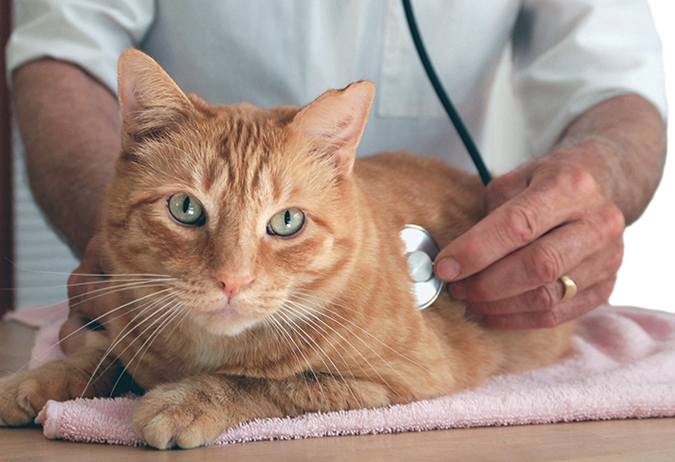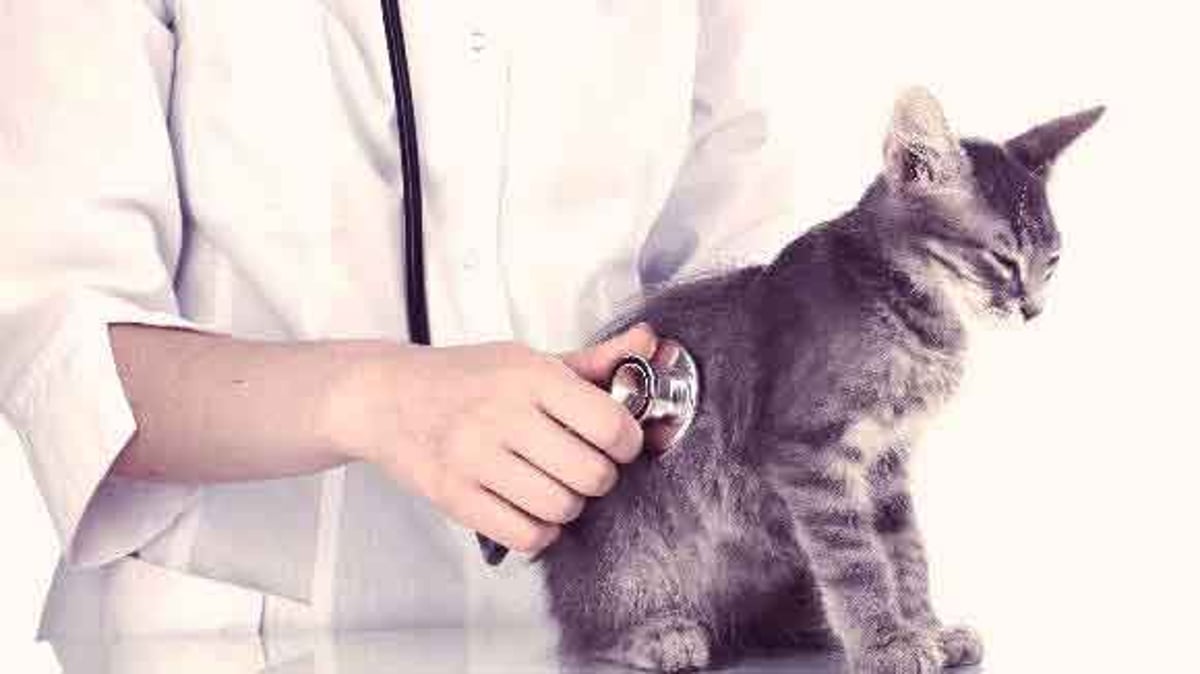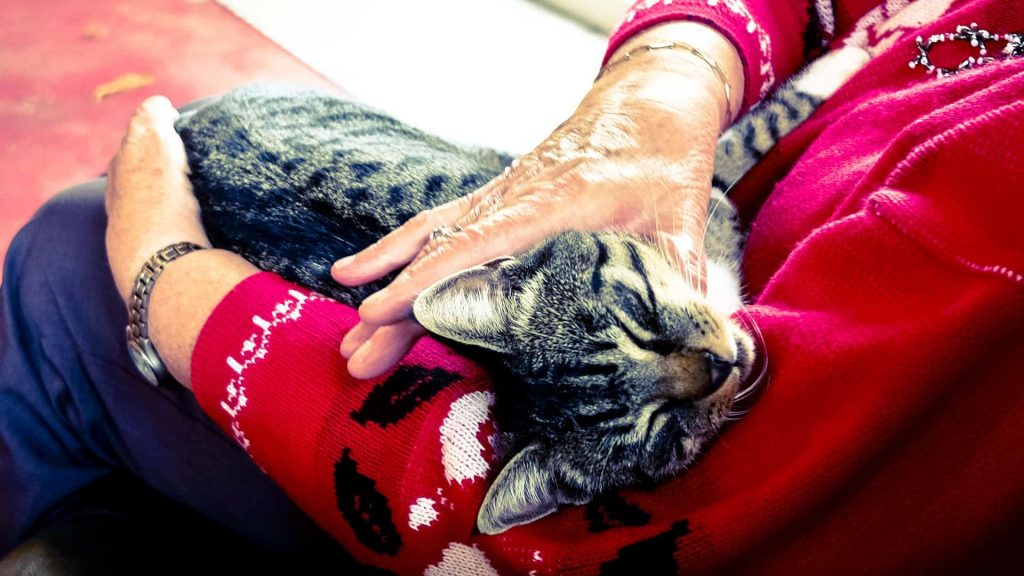Fluid in Cats Lungs From Failing Heart
If needed medication to remove excess fluid from the lungs will be given. This can result in the accumulation of excess fluid in the chest.

Congestive Heart Failure Catwatch Newsletter
Have they given you a diuretic.

. Your cats heart provides oxygenated blood and nutrition to all body parts on a repeat cycle. Up to 10 cash back Common medications used to manage heart failure in cats include. Feline infectious peritonitis FIP.
Cats with severe congestive heart failure may require initial hospitalization and oxygen therapy. The most common reason for these cats to have difficulty breathing is accumulation of fluid in their chest cavity according to Merck Veterinary Manual. With left-side congestive heart failure signs are associated with a backup of pressure in the vessels delivering blood to the left ventricle.
As fluid accumulates in the chest cavity the lungs are unable to inflate properly. Most cases of pleural effusions in cats are due to congestive heart failure CHF neoplasia pyothorax feline infectious peritonitis FIP or idiopathic chylothorax. When cats experience heart failure the heart can no longer pump fluid throughout the body as it is intended to do.
She has been given an anti inflamatory and something to reduce the fluid and has been booked in to a cardiologist tomorrow. A failing heart may lead to extreme fatigue excess fluid retention in various body cavities and death. Normal lungs have fluid that is moved from the lungs into the internal space of the body an on-going process for normal healthy function.
This can be caused by a failure on either or both sides of the heart. Signs associated with heart failure depend on the causes of the heart failure and the heart chamber that is affected. She went to the vet this morning and she has a new heart murmur at 6 years old.
Pulmonary Edema in Cats. On occasion your veterinarian may note a heart murmur or abnormal sound when listening to your cats heart. A wide variety of causes - including heart failure kidney disease infection cancer and traumatic injury to the airways - result in the buildup of fluid within the pleural cavity the pressure of which compresses the lungs and inhibits their expanding and contracting.
If there is added pressure in the lungs or other underlying. If fluid surrounds the lungs pleural effusion or is found in the sac surrounding the heart pericardial effusion it may need to be removed to improve breathing and. This medication affects the heart muscle allowing it to fill the heart with more blood and pump more.
Once heart failure begins your cat will initially start breathing more rapidly then progress to having difficulty breathing. Consequently when the heart struggles to deliver enough blood fluid can back up into the lungs. Diuretics such as furosemide.
The vet took an x-ray says she may have fluid around her lungs causing it she also has inflammation of her bronchiai. Tumors in the lungs or chest wall can lead to pleural effusion. Pulmonary edema refers to fluid buildup in the lungs and is often associated with pneumonia although there are many other possible causes.
As the disease progresses signs can include. Difficult or rapid breathing Blue or gray gums or tongue Loss of appetite Weakness or lethargy tiredness. Her breathing was raspy noisy and wet it sounded like there was fluid in her.
A secondary condition referred to as cardiac tamponade results from this retention of fluid as the swelling of fluid applies pressure on the beating heart compressing it. Many dogscats with heart failure end up with fluid on the lungs but its usually quite late in the disease in my experience. Cats breathe through their mouths only in desperation.
Head trauma can cause pulmonary edema in cats. These researchers used medical record data to investigate and characterize potential associations between causes of pleural effusion and clinical signs in cats. Pericardial Effusion in Cats.
These medications drain the extra fluid that is filling the chest. Unfortunately until the heart begins to fail and fluid builds up in the lungs often there are no symptoms. And then if were talking about the distress that heart disease and heart failure can cause well at the end of the disease when its becoming all too much for the cat and the body to take then effectively the lungs or the chest very often are filling up with fluid ultimately causing suffocation and that can be very distressing for a cat as you can well understand.
Cat heart failure occurs when a cats heart is unable to pump adequate blood to its body. The most common symptom of congestive heart failure in cats is difficulty breathing. If heart failure is a component of the illness medication to manage that disease will be added.
For a cat with severe breathing distress treatment includes hospitalization with oxygen therapy and medication to dilate the breathing passages. Pericardial effusion is a condition in which an abnormally large amount of fluid collects in the pericardial sac that surrounds the cats heart pericardium. Recognizing feline congestive heart failure CHF as well as common feline heart failure symptoms will help you to protect your cat against.
Whether they can move the fluid depends on whether your cat is in a fit state to undergo procedures and trial medications which it doesnt sound like she is at the moment. This causes fluid to accumulate in the lungs called pulmonary edema and in the chest cavity outside the lungs. Pulmonary edema the abnormal accumulation of fluid in the tissue airways or air sacs alveoli of the lungs may occur along with circulatory disorders such as congestive heart failure or in some allergic reactions or infectious diseases.

Heart Diseases Cats Heartsmart

Signs Of Congestive Heart Failure In Cats Petcarerx

Congestive Heart Failure In Cats When To Euthanize Cloud 9 Vets

Congestive Heart Failure Chf In Cats Veterinarians Green Valley Az Animal Care Center Of Green Valley
Comments
Post a Comment